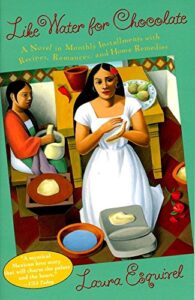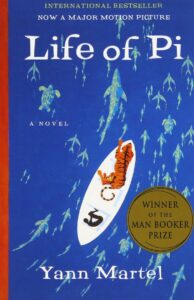Updated Dec 2, 2020
Course: ENG 2400
Title: Films from Literature
Professor Sean Scanlan
Fall 2020
Instructor: Professor Sean Scanlan
Section: O552
Time: Thursdays 2:30 – 4:15 pm on Zoom
Place: ONLINE; this class is Synchronous which means students must meet at designated times
Office: Namm 511
Office Hours: Mondays 2-3pm and Thursdays 11am-12; Zoom link TBA
Course Website on OpenLab: https://openlab.citytech.cuny.edu/profscanlan-english2400-o552-fall2020/
E-mail: sscanlan@citytech.cuny.edu
Office Phone: 718-260-5123
Mailbox: Inside the English Dept. office: Namm 512
Pre-requisite: English Composition 1101 (3 hours, 3 credits)
Course description: ENG 2400 is a course that allows students to examine the relationship between films and their literary sources. Through classroom discussion and out-of-class assignments, students will analyze classic and contemporary literary texts and their cinematic versions. Students will examine the relationship between film and literature, with specific focus on the techniques used in fiction, drama, and film. Students will focus on the similarities and differences of literary works adapted into films.
This course is writing intensive.
Course Objectives:
•Recognize literary devices such as foreshadowing, symbol, and stream-of-consciousness.
•Understand forms and techniques of both literary and cinematic narratives.
•Investigate technical, cultural, political, historical, and economic contexts that shape the construction of films
based on published works.
•Develop communication skills by discussing and writing about literature-based motion pictures employing
analysis and comparison/contrast. We will review and utilize Modern Language Association (MLA) citation and
style in our formal writing assignments.
•Improve reading/viewing skills that enhance appreciation of the relationship between literature and films.
•Enhance critical thinking skills.
Grading Assessments:
| Item | Percentage |
| Essays (2) | 40% |
| Quizzes (3) | 30% |
| Final Exam | 20% |
| Attendance/Participation/Virtual Coffeehouse Posts (3) (unique course content) | 10% |
| 100% |
| Required Texts
1. Laura Esquivel, Like Water for Chocolate. Anchor. ISBN-13: 978-0385420174. Amazon; new = $13.63; used = $1.21; Kindle = $12.99 2. Shakespeare, William. Othello. We will read this free version: https://www.opensourceshakespeare.org/views/plays/play_view.php?WorkID=othello&Scope=entire&pleasewait=1&msg=pl
3. Yann Martel, K. Life of Pi. Mariner, 2003. Print. ISBN-13: 978-0156027328. Amazon: new = $15.95; used = $0.75; Kindle = $9.99
Other readings will be available on our course website |
In order to help us improve college-level grammar and writing, we will use a free, online grammar guide called Purdue OWL, published by Purdue University. http://owl.english.purdue.edu/owl/
Other Materials:
I encourage students to use a physical, paper notebook for taking notes in addition to typing notes on a digital device. This blend is encouraged, but it is up to each student to decide the best way to write, organize, and review notes. Students must devise a system to record, store, and organize the course materials. It is very important to save all work for this class. Devise a filing system that allows you to maintain homework and essay drafts, final copies of all major assignments, and research notes, outlines, and written evaluations. In addition to keeping a copy of all your work on the hard drive of your computer, save all work on a stable format such as a flash drive or on a remote hard drive/server such as iCloud, Dropbox, or Google Docs. Never throw away or delete ANYTHING until after you have received your final grade. Computer malfunctions are bound to happen–do no let them harm your grade. Be proactive and always email any issues to me well in advance of due dates (if possible). This may be a challenging semester in terms of handling technology (and life) during a pandemic, but I want to set the tone by calling for open and generous communication.
Important Notes:
1. Attendance: Please make an effort to attend every class and please join the Zoom on time. Do not join the Zoom and then leave to do other things. I will ask questions and expect responses. Attendance is tied to participation.
2. Drafts and Typing: The two essays will require organization, honesty, and clarity. The essays may require drafts. If you have word processing questions, please ask me. All students have access to Microsoft Word. You can also use Google Docs for free (https://docs.google.com/) or Open Office for free (www.openoffice.org/).
3. UPDATED: Late Papers and homework: ****Note: If you need to turn in any work this semester, no matter how late, please email me so we can set up a timeline for submission.
[Old Policy: Late Papers: For each day that an assignment is late, one full letter grade will be deducted (5 days = 0).Two full letter grades (20 points) will be deducted for each day that an assignment is late. After three days, the assignment will be recorded as a “0.”]
4. Homework Requirement: According to Federal eligibility requirements for a college or university in the US, 3 hours of in-class contact time require approximately 6 hours of homework, study, and/or preparation per week. This is a CUNY standard. And this requirement is also referred to as a Carnegie Unit.
[See: https://www2.ed.gov/about/offices/list/ous/international/usnei/us/credits.doc]
5. College Policy on Academic Integrity: “Students who work with information, ideas, and texts owe their audience and sources accuracy and honesty in using, crediting, and citing sources. As a community of intellectual and professional workers, the College recognizes its responsibility for providing instruction in information literacy and academic integrity, offering models of good practice, and responding vigilantly and appropriately to infractions of academic integrity. Accordingly, academic dishonesty is prohibited in CUNY and at New York City College of Technology, and is punishable by penalties, including failing grades, suspension, and expulsion. The complete text of the College policy on Academic Integrity may be found in the catalog.”
Plagiarism is the act of presenting another person’s ideas, research or writings as your own. The following are some examples of plagiarism, but by no means is it an exhaustive list: • Copying another person’s actual words without the use of quotation marks and footnotes attributing the words to their source. • Presenting another person’s ideas or theories in your own words without acknowledging the source. • Using information that is not common knowledge without acknowledging the source. • Failing to acknowledge collaborators on homework and laboratory assignments.
6. Be on time: tardiness disrupts the entire class. Come prepared: turn off/silence all electronic gadgets, please (see page 91 of the student handbook: “Prohibited: The use of cellular phones in academic and study areas of the college including but not limited to classrooms, libraries, laboratories, learning centers and auditoriums.”)
7. The Atrium Learning Center: I encourage all students to take advantage of the writing tutors at the Learning Center. This is an excellent recourse for writers of all abilities. ATRIUM LEARNING CENTER: Atrium Building LG-18: https://www.citytech.cuny.edu/alc/writing.aspx
UPDATE: The English Department is running a new Writing Center. It is open for distance learning help concerning writing and literature. Students needing writing help should email CityTechWritingCenter@gmail.com, and they will receive a fast response.
8. Revision Policy: Revision Policy: students may revise the first major essay. The revision must be submitted, at the latest, two weeks before the end of the semester (Dec. 10). The overall grade for the essay will be the average of the original essay grade and the revised essay grade.
9. Accessibility Statement: City Tech is committed to supporting the educational goals of enrolled students with disabilities in the areas of enrollment, academic advisement, tutoring, assistive technologies and testing accommodations. If you have or think you may have a disability, you may be eligible for reasonable accommodations or academic adjustments as provided under applicable federal, state and city laws. You may also request services for temporary conditions or medical issues under certain circumstances. If you have questions about your eligibility or would like to seek accommodation services or academic adjustments, please contact the Center for Student Accessibility at 300 Jay Street, L-237, 718 260 5143 or http://www.citytech.cuny.edu/accessibility/.
WEEKLY SCHEDULE (SUBJECT TO CHANGE)
| Dates: | Objectives: | Assignments: |
| Week 1: Aug 27 | Introductory discussion, terminology, and course plan. | • Introduction to class, Definitions, Website
• The Captive; Voyage to the Moon • Homework: Questionnaire • Homework: Read “The Tell Tale Heart” by Poe |
| Week 2: Sept 3 | Viewing practice, reading practice | • Due: Questionnaire
• Discuss: The Tell Tale Heart and definitions of Film/Narrative. View: Film versions of The Captive and “Tell Tale Heart” • Homework: Read “The Yellow Wallpaper” And write Film-Lit Coffeehouse post (TBA) • Homework: Prepare for Quiz 1, which will be over TBA |
| Week 3: Sept 10 | Definitions
Viewing Assessment Discussion of Narrative |
• Due: Film-Lit Coffeehouse post
• View The Yellow Wallpaper • Review Categories of Analysis handout • Homework: Prepare for Quiz 1 |
| Week 4: Sept 17 | Translations and Narration | • Due: Film-Lit Coffeehouse Post and Quiz 1
• Discuss and View: and Midterm Essay Details • Homework: Read “It Had to Be Murder” by Cornell Woolrich, then write Coffeehouse Post #2 |
| Week 5: Sept 24 | Compare a modern novel to its films. | • Due: Film-Lit Coffeehouse Post #2
• Discuss “It Had to Be Murder,” and begin watching Rear Window • Discuss adaptation, film techniques • Homework: Coffeehouse Post #3 |
| Week 6: Oct 1 | Compare modern short stories to their films. | • Due: Coffeehouse Post #3
• Finish Rear Window, directed by Alfred Hitchcock • Homework: Prepare for Quiz 2; Begin reading Like Water for Chocolate and Work on Midterm Essay |
| Week 7: Oct 8 | Compare modern short stories to their films. | • Discuss Midterm Essay
• Quiz 2–finish by Friday • Homework: Continue reading Like Water |
| Week 8: Oct 15 | Compare modern short stories to their films. | • Homework: Finish Like Water;
• Homework: complete Coffeehouse # 4 (specific to Midterm Essay); Discuss text and Midterm Essay |
| Week 9: Oct 22 | Compare a modern novel to its film. | • Due: Coffeehouse #4 (draft of Midterm Essay)
• Discuss and finish Like Water • Homework: revise and edit Midterm Essay; Begin reading Othello |
| Week 10: Oct 29 | Compare a classic play to its film. | • Due: Final Draft of Midterm Essay
• Discuss, read, and view versions of Othello • Homework: Othello: Introduction and Acts II and III. |
| Week 11: Nov 5 | Anatomy of a play |
• Discuss and view versions of Othello
|
| Week 12: Nov 12 | Film techniques, | • Finish viewing Othello
• Homework: Begin reading Life of Pi |
| Week 13: Nov 19 | Film techniques, |
• Homework: Continue reading Life of Pi |
| Week 14: Nov 26 | NO CLASS (THANKSGIVING) | |
| Week 15 Dec 3 | Final Essay and revision techniques | • Due: Quiz 3
• Discuss Life of Pi • Homework: Finish Final Essay |
| Week 16: Dec 10 | Bringing it all together |
• I will have office hours this week (Monday 2-3; and Thursday 11-12) |
| Week 17: Dec 17 | Final Exam | • Final Exam Due –Emailed to Prof. Scanlan
• Final Essay Due –Posted to OpenLab [category: Final Essay] |





Leave a Reply